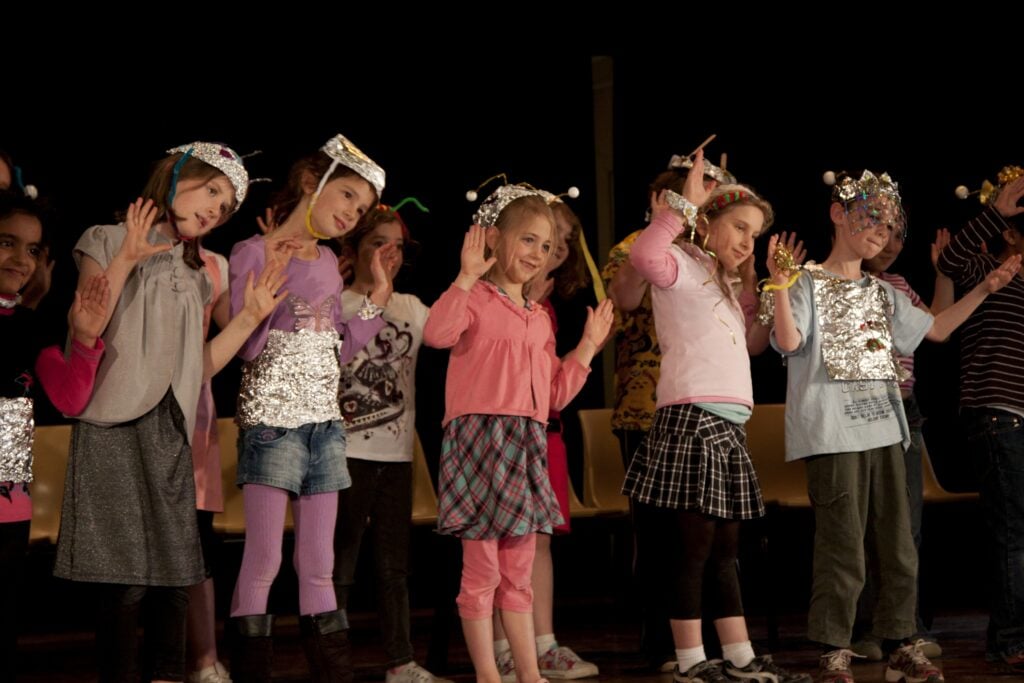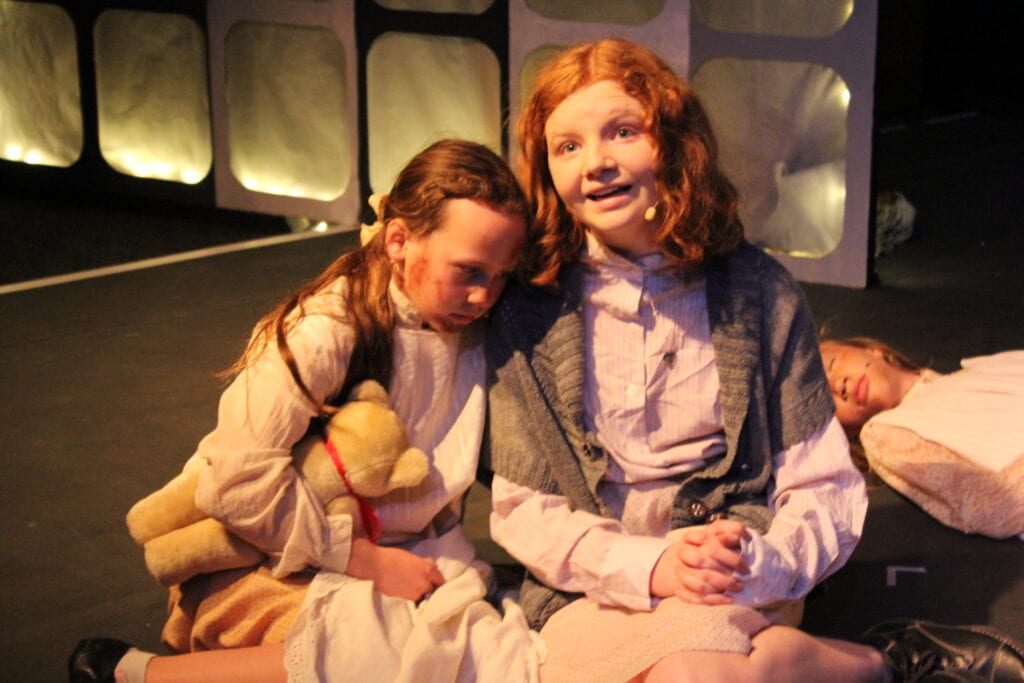For many parents, having an anxious child is one of the great parenting challenges. Find out how you can use drama classes to beat childhood anxiety.
It can be frustrating – and even embarrassing – when your child refuses to get into the water at swimming lessons, or has a screaming meltdown before going into a friend’s birthday party, or feigns sickness every time there’s an exam.
These are all manifestations of anxiety, where your child is willing to do anything to avoid facing what’s making them anxious.
But did you know that joining a drama class may help your anxious child?
How drama classes can help
At Perform Australia we’ve given a lot of thought to this. While drama is often about a performance – admittedly a scary thought for the shy and nervous – it is the process of drama that assists with anxiety. A drama class is a creative way to gradually develop skills for dealing with life’s challenges.
But how does this actually work?

Traditionally, a drama class begins with a warm-up – just as professional actors warm up before a show. There is a focus on breathing and relaxation, stretching the body, and exercising the voice in preparation for the activities to come.
It’s these very activities – breathing, slowing things down, and body awareness or ‘mindfulness’ – that are often taught by psychologists to assist with anxiety. A drama student learns them as part-and-parcel of being an actor.
Next, there may be some activities that invite imaginative input. Creative storytelling, embodiment of characters, improvising a scene based on a theme – all of these require drama students to delve into their own ideas bank. They bring their inner selves out into the open.
While initially anxious children may be tentative about this process, once they get the hang of it we watch them experience a sense of release and freedom in their own creative expression. Science is confirming again and again that creative expression is good for us; creativity floods the brain with dopamine, which relieves anxiety and depression and generates a general sense of happiness.
Following the initial drama exercises, a class may then turn to working on a script for an upcoming performance.
Learning a script

Learning a script frequently involves interaction with others, but the boon for the anxious kid is: what you say is already prepared! So, drama helps kids interact socially with others, via the medium of performance, without some of the usual pressures of having to know what to say. Script work becomes a shared experience, forging bonds, and giving your child the sense that “we’re working on this together”.
Performing in front of others
When performance time comes – whether that’s a stage performance or a film shoot – it’s normal for your child to feel anxious.
Here, a drama class teacher can take the opportunity to normalise the experience of anxiety and note one very important aspect: it will pass. Teachers will explain to your child that what they are experiencing before a performance – nerves – is their body’s way of getting ready for the challenge of performance. Butterflies in the stomach, feeling a little sweaty, even a sense of panic are all reasonable human responses before you step out on stage, or the director calls “action!” Children who perform regularly learn to sit with this discomfort for some minutes, without letting it overcome them. This is an important life skill to master, and participation in drama classes gives the anxious child many opportunities to practice it.
No pressure to perform

If there is some reason why an anxious child can’t perform on stage or screen when the time comes, at Perform Australia, we won’t pressure them.
We’ll encourage it as much as we can, for sure, but if on one particular day an anxious child is just too overwhelmed we recognise that now is not the right time to push. The skills learned in drama classes do take some time to master after all. At this point it’s important to praise the child’s effort and preparation, and to debrief gently over what they are feeling.
But, if your anxious child does walk out on stage and perform – boy, are they thrilled when they return backstage afterwards! It is such an achievement to face fears, enjoy the moment, and put all they’ve learned into practice.
And it’s here that their drama experience becomes a turning point in their personal history.
What’s more, you as a parent now have another tool at your disposal. Next time your child is anxious about an upcoming challenge, you say, “Remember how you were feeling before your performance? And how great you felt afterwards? You can do that again – I know you can!”
Drama experiences create memories of battles won – for our children, and for ourselves.
So drama classes might just be your next secret weapon against anxiety.
This editorial was supplied by Elizabeth Avery Scott and was published in our print issue 41, August/September 2020. Elizabeth Avery Scott is CEO and co-founder of Perform Australia, a leading Australian drama school. She is also a trained counsellor, playwright, and mum of three. Perform Australia is taking enrolments now: www.perform.edu.au

